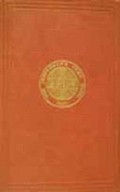Abstract
Afghánistán is a country of Asia lying between parallels 29° and 38° 20′ of north latitude, and 61° and 72° of east longitude, with a long narrow strip extending to 75° east longitude (Wákhán). On the north-east, the boundary follows a line running generally westward from a fixed point near one of the peaks of the Sarikol Range to Lake Victoria, thence along the line of that branch of the Oxus which issues from the lake, and so, following the course of the Oxus, to Khamiab, From Khamiab, the line runs in a south-westerly direction to Zulfikár, on the river Harí-Rúd, and thence by Kál-i-Kalla to Hashtadan, thence to the south, between Hashtadan and Siah Koh, north of Bandan, the boundary is undefined. The Sistam lake and the Helmund river form the boundary between Siah Koh and Band-i-Seistan, and thence the boundary runs south in a straight line to Koh-i-Malik Siah, where the frontiers of Persia, Afghánistán and Baluchistan meet. Here the boundary turns round and runs generally eastwardly to the Khwája Amran range. The eastern and southern boundaries of Afghánistán long rema: ned uncertain, but the basis of a delimitation was settled, in 1893, at a conference between the Amír Abdur Rahmán and Sir Mortimer Durand, and the boundary agreed upon, with the exception of the Khaibar-Asmar section, has since been demarcated. The Amír agreed that Chitral, Bajaur and Swát should be included within the British sphere of political influence, while he himself was to retain Asmar and the Kunar valley above it, as far as Arnawai; also the tract of Birmal, west of Wazíristán. In the subsequent demarcation, Káfiristán was included within the countries, under Afghán control, and is garrisoned by the Amír’s troops. The Amír has withdrawn his pretensions over Waziristán. Between March, 1903, and May, 1905, the boundary towards Persia was demarcated from Koh-i-Malik Siah to the Helmund, and thence to Siah Koh. In July, 1905, Sir Henry McMahon announced his award concerning disputed water rights over the Helmund river, but the award has not yet been ratified by the Persian Government.
Access this chapter
Tax calculation will be finalised at checkout
Purchases are for personal use only
Preview
Unable to display preview. Download preview PDF.
Editor information
Copyright information
© 1920 Palgrave Macmillan, a division of Macmillan Publishers Limited
About this chapter
Cite this chapter
Scott Keltie, J., Epstein, M. (1920). Afghánistán. In: Scott Keltie, J., Epstein, M. (eds) The Statesman’s Year-Book. The Statesman’s Yearbook. Palgrave Macmillan, London. https://doi.org/10.1057/9780230270497_13
Download citation
DOI: https://doi.org/10.1057/9780230270497_13
Publisher Name: Palgrave Macmillan, London
Online ISBN: 978-0-230-27049-7
eBook Packages: Palgrave Political & Intern. Studies CollectionPolitical Science and International Studies (R0)

